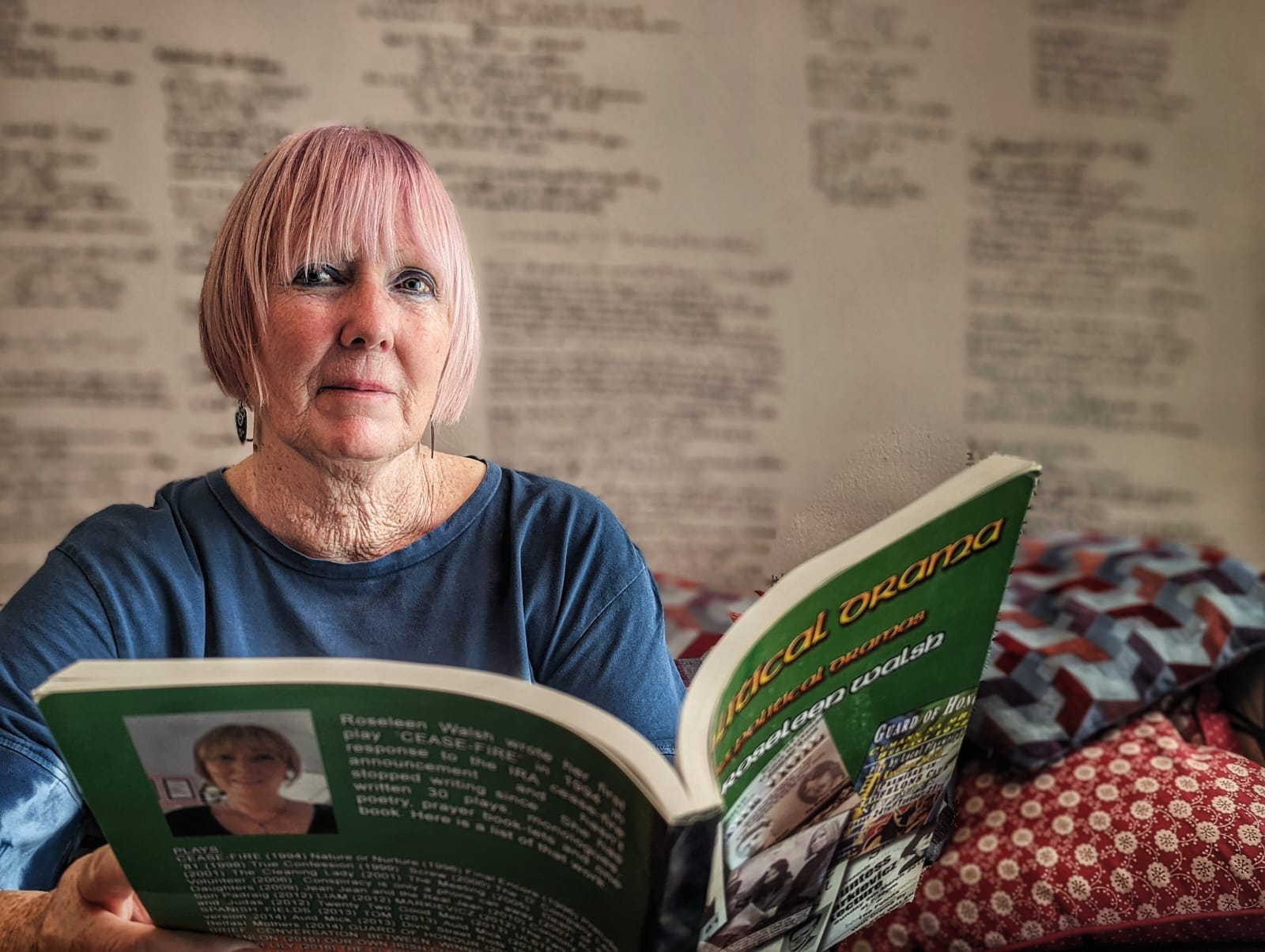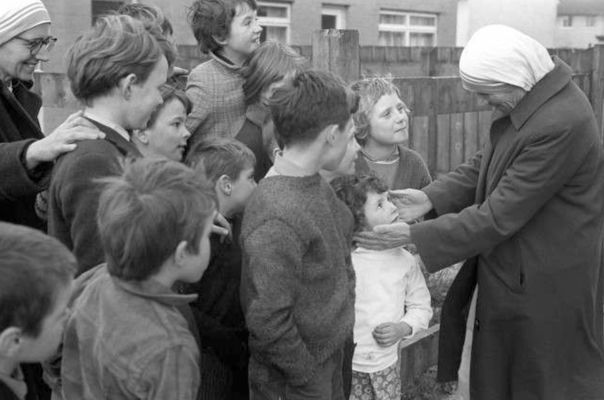FOR many, poetry is a form of expression which allows for deep self-reflection, and this is true for Andersonstown woman, Roseleen Walsh.
Having been interned in 1973, Roseleen famously wrote poetry on her cell walls and now, following the death of her husband Martin last November, she has embarked on covering the walls of her apartment in the Clonard area with her words, as a form of comfort.
“Anybody who finds it difficult to communicate goes deeper, so the poetry comes from deep inside,” she said.
“At school I couldn’t read. School was a nightmare for me and I had gone to primary school and didn’t go anywhere after that. This need to always communicate and also because of a shyness led to writing poetry.
“In the '50s when I was at school, if you couldn’t read you were inclined to feel stupid and that held you back from speaking out. I think it comes from somewhere really deep.”
Roseleen’s poetry covers four themes – political, romance, social issues and nature – and in addition to this, she has also written almost 40 plays.
Last week, Roseleen told our Over The Wire podcast of her experience while interned in Armagh Gaol and of how she had covered the walls of her cell in poetry.
“The first poem I wrote when I got into Armagh was about the RUC man George which in my play (Interned) I went into detail about how humane he was to me.
“Every day I was writing other poems on the wall. The thing was that you weren’t allowed to write on your wall. No-one was.
“In fact, Eileen Hickey who was the OC, if anyone wrote on their wall, they were told to wipe it out.
“The screws never passed remarks, they saw it as works of art, they saw it for what it was. Eventually I had the poems on the ceiling and every pick of the three walls were covered in poetry.”
She continued: “Writing on my walls was like a comfort blanket. My husband died in November and I have handwritten my poetry onto the walls here after he died. I was thinking that is sort of the same thing because I am alone here and so I want to comfort myself with my own words.”
In addition to her poetry, Roseleen has self-published the scripts of her political plays with copies being held in New York, Boston and in libraries across Ireland.
“I wrote The Vigil which was about Kieran Doherty. We had to adapt it because when he died, different members of the family were by his side. His father and Michael (Kieran’s brother) had just left and reached home when they got word.
“Because of that and with Michael’s permission, I adapted it so that Alfie and Margaret were in the cell with Kieran and I brought in Terrence MacSwiney and Joe McDonnell. People were very touched by it and that covered all of the hunger strikers with the raw themes, the compassion of the families and how willingly the prisoner went.
“Kieran Doherty said to his mother on his last day that it is only a step over and he put his hand out.
“To the very end, where did they get the courage from? It was something so deep and every day I think of the hunger strikers and if they were able to do that, there are things we can do which we wouldn’t think we would be able to.”
To read more about Roseleen’s poetry and plays, visit her website roseleenwalsh.org







